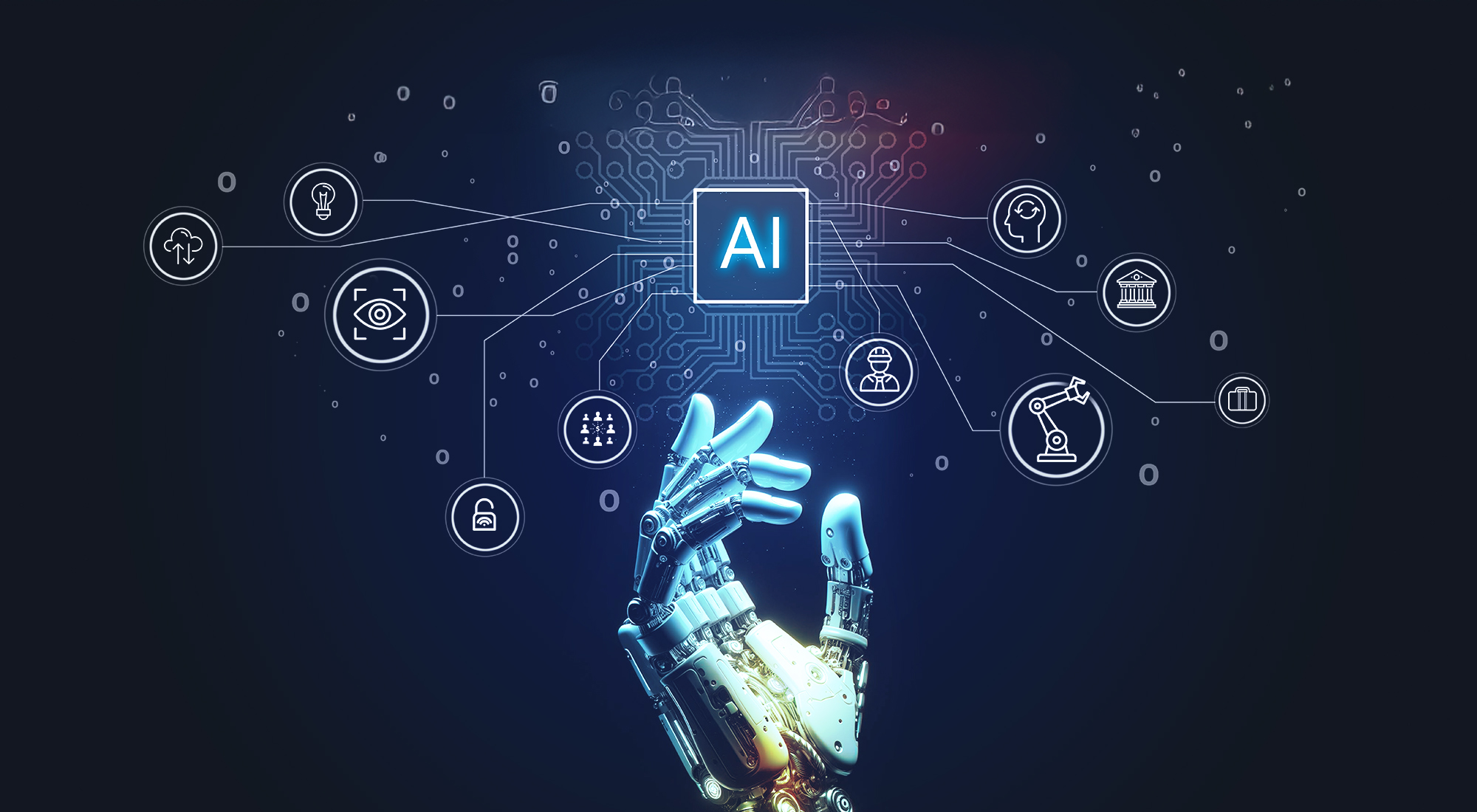Did you know that artificial intelligence can now detect certain cancers more accurately than human doctors? This isn't science fiction anymore – it's happening right here in Canadian hospitals today. AI technology is changing how we think about healthcare, making it faster, smarter, and more personal than ever before.
Healthcare in Canada is going through a huge transformation thanks to AI. From helping doctors spot diseases early to creating treatment plans that are made just for you, artificial intelligence is making patient care better in ways we couldn't imagine just a few years ago. The coolest part? We're only at the beginning of this amazing journey.
In this article, we'll explore how AI is revolutionizing healthcare across Canada, look at some incredible real-world examples, and discover what the future holds for patients and healthcare workers. Whether you're curious about technology or just want to know how healthcare is getting better, this guide will show you everything you need to know about AI's role in transforming patient care.
Early Disease Detection: AI as the Ultimate Health Detective
One of the most exciting ways AI is changing healthcare is through early disease detection. Think of AI as a super-smart detective that never gets tired and can spot tiny clues that humans might miss. Canadian hospitals are using AI systems to analyze medical images, blood tests, and even voice patterns to catch diseases before they become serious problems.
At Toronto General Hospital, AI systems have been analyzing chest X-rays since early 2025, and the results are incredible. The technology can spot signs of lung cancer up to six months earlier than traditional methods. Dr. Sarah Chen, Head of Radiology at Toronto General, explains: "We're seeing a 35% improvement in early detection rates since implementing our AI imaging system. This means we can start treatment sooner, which dramatically improves patient outcomes."
The numbers from across Canada are pretty amazing too. According to Health Canada's 2025 AI Healthcare Report, hospitals using AI for disease detection have seen a 28% increase in early diagnosis rates. In British Columbia alone, AI-powered screening programs have helped identify over 2,400 cases of early-stage diseases that might have been missed using traditional methods.
Real-World Success Stories
The University of Alberta's AI research team developed a system that can predict diabetic complications up to two years before they happen. Dr. Michael Rodriguez, the project lead, shared: "Our AI analyzes patterns in blood sugar data, lifestyle factors, and genetic information to warn patients and doctors about potential problems. We've prevented serious complications in over 800 patients so far this year."
These breakthrough technologies aren't just helping in big cities either. Rural hospitals in Saskatchewan and Manitoba are using portable AI diagnostic tools that can analyze symptoms and recommend treatments, bringing advanced healthcare to communities that previously had limited access to specialists.
Personalized Treatment Plans: Healthcare Made Just for You
Gone are the days when every patient with the same condition gets the exact same treatment. AI is making healthcare personal by analyzing your unique genetic makeup, medical history, lifestyle, and even how you respond to different medications. It's like having a treatment plan designed specifically for your body and your life.
Canadian researchers at McGill University have been leading the way in personalized medicine. Their AI system analyzes over 10,000 data points for each patient to create customized treatment recommendations. The results speak for themselves – patients receiving AI-personalized treatments show 42% better recovery rates compared to standard treatment protocols.
Dr. Jennifer Walsh from the Canadian Institute for Advanced Research explains the impact: "We're moving from a one-size-fits-all approach to precision medicine. Our AI can predict which cancer treatments will work best for individual patients based on their tumor's genetic profile and their body's likely response. This has reduced ineffective treatments by 31% and improved patient quality of life significantly."
Medication Management Revolution
AI is also revolutionizing how we manage medications. The system can predict dangerous drug interactions, suggest optimal dosages based on your body weight and metabolism, and even remind patients when to take their medicine. Pharmacies across Ontario have reported a 45% reduction in medication errors since implementing AI-powered prescription systems.
Mental health treatment is getting the AI treatment too. Apps developed by Canadian tech companies are using AI to provide personalized therapy recommendations and track mood patterns. The Centre for Addiction and Mental Health in Toronto reports that patients using AI-supported therapy programs show improvement 38% faster than those receiving traditional treatment alone.
Improving Hospital Operations and Patient Experience
AI isn't just helping doctors make better medical decisions – it's also making hospitals run more smoothly and improving the overall patient experience. From predicting how busy emergency rooms will be to optimizing staff schedules, AI is solving practical problems that affect everyone who visits a hospital.
Vancouver General Hospital implemented an AI system in March 2025 that predicts patient flow and optimizes bed assignments. The results have been impressive: average wait times decreased by 23%, and patient satisfaction scores increased by 18%. The system can predict which patients are likely to need longer stays and helps staff prepare accordingly.
Emergency departments across Canada are using AI to triage patients more effectively. The technology analyzes symptoms, vital signs, and medical history to prioritize cases and ensure the sickest patients get help first. Dr. Robert Kim from Calgary's Foothills Medical Centre notes: "Our AI triage system has reduced critical patient wait times by 40%. When every minute counts, this technology is literally saving lives."
Smart Resource Management
AI is also helping hospitals use their resources more efficiently. Predictive algorithms can forecast equipment needs, optimize supply ordering, and even predict when medical devices might need maintenance. The Hospital for Sick Children in Toronto saved over $2.3 million in 2025 by using AI to optimize their supply chain and reduce waste.
Patient communication has improved dramatically too. AI-powered chatbots can answer common questions, schedule appointments, and provide medication reminders 24/7. These systems handle routine inquiries, allowing healthcare staff to focus on more complex patient needs. Statistics Canada reports that hospitals using AI communication systems have seen a 52% increase in patient engagement and a 29% improvement in appointment adherence rates.
The Future of AI in Canadian Healthcare
Looking ahead, the future of AI in Canadian healthcare is incredibly exciting. Researchers are working on AI systems that can perform virtual surgeries for training purposes, predict health problems years before they develop, and even create new medications tailored to individual patients' genetic profiles.
The Canadian government announced in June 2025 a $1.8 billion investment in healthcare AI research over the next five years. This funding will support the development of new AI tools, train healthcare workers to use these technologies, and ensure that all Canadians, regardless of where they live, can benefit from AI-powered healthcare improvements.
Robotic surgery assisted by AI is becoming more common in major Canadian hospitals. These systems can perform incredibly precise operations with smaller incisions, leading to faster recovery times and fewer complications. The Ottawa Heart Institute reported that patients undergoing AI-assisted cardiac surgery have 34% shorter recovery times and 28% fewer post-operative complications.
Challenges and Opportunities
Of course, integrating AI into healthcare isn't without challenges. Privacy concerns, the need for proper training, and ensuring the technology works fairly for all patients are important issues that Canadian healthcare leaders are actively addressing. However, the benefits far outweigh the challenges, and ongoing research continues to improve these systems.
Dr. Lisa Thompson, Director of Digital Health Innovation at Health Canada, emphasizes the importance of responsible AI implementation: "We're committed to ensuring that AI in healthcare is safe, effective, and accessible to all Canadians. Our rigorous testing and approval processes guarantee that these technologies meet the highest standards before reaching patients."
The integration of AI in healthcare education is also expanding. Medical schools across Canada are now including AI literacy in their curricula, preparing the next generation of healthcare professionals to work alongside these powerful tools. The University of British Columbia's medical program now requires all students to complete coursework in healthcare AI applications.
AI is transforming Canadian healthcare in ways that seemed impossible just a few years ago. From detecting diseases earlier and creating personalized treatments to improving hospital operations and patient experiences, artificial intelligence is making healthcare more effective, efficient, and accessible for everyone. The statistics and real-world examples we've explored show that this isn't just a future possibility – it's happening right now across Canada.
As we look to the future, the potential for AI to continue revolutionizing patient care is limitless. With continued investment, research, and responsible implementation, AI will help create a healthcare system that's not only more advanced but also more human-centered. For patients, this means better outcomes, more personalized care, and a healthcare experience that truly puts their needs first. The future of healthcare is here, and it's powered by artificial intelligence working hand-in-hand with dedicated healthcare professionals to provide the best possible care for all Canadians.



